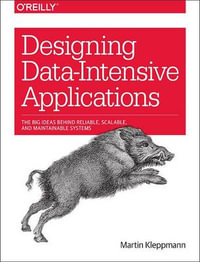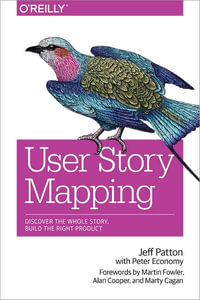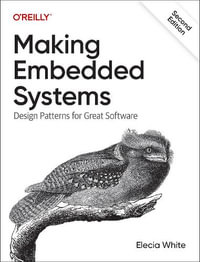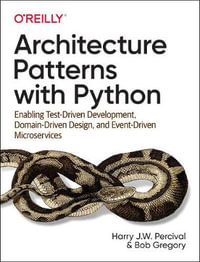
Analyzing Computer System Performance with Perl
PDQ
By: Neil J. Gunther
Paperback | 28 November 2014 | Edition Number 2
At a Glance
Paperback
$105.19
Aims to ship in 7 to 10 business days
When will this arrive by?
Enter delivery postcode to estimate
To solve performance problems in modern computing infrastructures, often comprising thousands of servers running hundreds of applications, spanning multiple tiers, you need tools that go beyond mere reporting. You need tools that enable performance analysis of application workflow across the entire enterprise. That's what PDQ (Pretty Damn Quick) provides. PDQ is an open-source performance analyzer based on the paradigm of queues. Queues are ubiquitous in every computing environment as buffers, and since any application architecture can be represented as a circuit of queueing delays, PDQ is a natural fit for analyzing system performance.
Building on the success of the first edition, this considerably expanded second edition now comprises four parts. Part I contains the foundational concepts, as well as a new first chapter that explains the central role of queues in successful performance analysis. Part II provides the basics of queueing theory in a highly intelligible style for the non-mathematician; little more than high-school algebra being required. Part III presents many practical examples of how PDQ can be applied. The PDQ manual has been relegated to an appendix in Part IV, along with solutions to the exercises contained in each chapter.
Throughout, the Perl code listings have been newly formatted to improve readability. The PDQ code and updates to the PDQ manual are available from the author's web site at www.perfdynamics.comIndustry Reviews
From the reviews
"The literature of computer performance analysis is generally composed of two groups: heavy theoretical treatises and performance cookbooks. [...] Surprisingly, this book is exceptionally well balanced between theory and practice [...] . I strongly recommend this book, both for the novice practitioner and for the experienced performance analyst. Both can extract a vast array of benefits, ranging from understanding the theoretical concepts of performance modeling, to building for themselves a powerful modeling tool [...] ." Jair Merlo, Computing Reviews, May 2005
From the reviews of the second edition:
"Besides its case studies on applying queueing theory to the analysis of computer performance, this book on queueing circuits also includes a quick user guide to Perl Pretty Damn Quick (PDQ), a reference manual, and numerous examples. ... The book is written to be a field manual for enlightened practitioners of performance analysis, or possibly a school textbook. ... It is a laudable achievement to make performance analysis theoretical foundations available to anyone who is interested and can master high-school algebra." (A. Squassabia, ACM Computing Reviews, December, 2011)
ISBN: 9783642437137
ISBN-10: 3642437133
Published: 28th November 2014
Format: Paperback
Language: English
Number of Pages: 504
Audience: Professional and Scholarly
Publisher: Springer Nature B.V.
Country of Publication: DE
Edition Number: 2
Edition Type: Revised
Dimensions (cm): 23.39 x 15.6 x 2.57
Weight (kg): 0.7
Shipping
| Standard Shipping | Express Shipping | |
|---|---|---|
| Metro postcodes: | $9.99 | $14.95 |
| Regional postcodes: | $9.99 | $14.95 |
| Rural postcodes: | $9.99 | $14.95 |
How to return your order
At Booktopia, we offer hassle-free returns in accordance with our returns policy. If you wish to return an item, please get in touch with Booktopia Customer Care.
Additional postage charges may be applicable.
Defective items
If there is a problem with any of the items received for your order then the Booktopia Customer Care team is ready to assist you.
For more info please visit our Help Centre.
You Can Find This Book In
This product is categorised by
- Non-FictionComputing & I.T.Computer ScienceSystems Analysis & Design
- Non-FictionComputing & I.T.Information Technology General Issue
- Non-FictionComputing & I.T.Computer Programming & Software DevelopmentProgramming & Scripting Languages
- Non-FictionBusiness & ManagementManagement & Management TechniquesManagement of Specific AreasKnowledge Management
- Non-FictionComputing & I.T.Digital Lifestyle & Online World: Consumer & User GuidesPortable & Handheld Devices User Guides
- Non-FictionComputing & I.T.Operating Systems
- Non-FictionComputing & I.T.Computer ScienceHuman-Computer InteractionInformation Architecture
- Non-FictionComputing & I.T.Computer Programming & Software DevelopmentSoftware Engineering
- Non-FictionBusiness & ManagementBusiness Mathematics & Systems
























